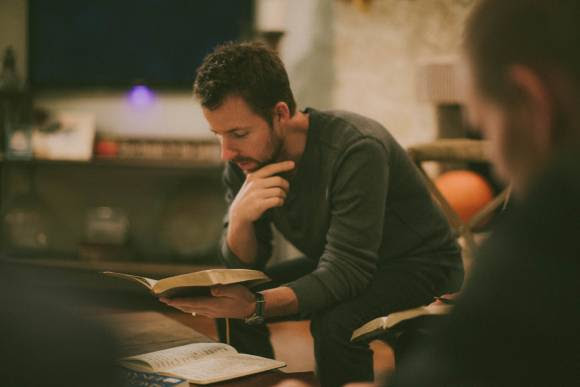Fasting As Mourning
Saturday, August 31, 2019
“Yet even now,” declares the Lord,
“return to me with all your heart,
with fasting, with weeping, and with mourning;
and rend your hearts and not your garments.”
Return to the Lord your God,
for he is gracious and merciful,
slow to anger, and abounding in steadfast love;
and he relents over disaster.
— Joel 2:12-13
Blessed are those who mourn, for they shall be comforted.
— Matthew 5:4
Mourning has little value in our culture compared to the world of the Bible. We seek to minimize all pain, whether outward hardship or internal sorrow, and move on as quickly as possible to happier occasions and comfortable feelings.
In the biblical perspective, and in some other cultures, mourning is a necessary and important human experience. When Jacob thought his son Joseph was dead, he mourned for many days (Genesis 37:34). When Moses died, the people of Israel wept and mourned for thirty days (Deuteronomy 34:8).
Fasting and mourning go hand in hand throughout the Bible. Joel 2:12-13, cited above, puts fasting and mourning together, along with weeping and inward sorrow. We can see another biblical example when Nehemiah heard the bad news of Jerusalem’s devastation, he wept, mourned, fasted, and prayed (Nehemiah 1:4). Repentance, fasting, mourning, and subsequent blessing form a vital partnership from God’s perspective.

At the beginning of the Sermon on the Mount, Jesus reinforced the Christian’s experience of mourning and its function as a means of God’s blessing. Yes, mourning still applies to us today. In fact, Jesus’ beatitude teaches us that mourning is a pathway to experiencing God’s blessings. If we never express our grief, we cut ourselves off from receiving God’s fullest blessings.
Our tendency is to comfort ourselves with false comfort. We try to tell ourselves everything is okay and that we’re happy with our current experience of God’s blessing. If we run a shortcut to fast comfort and put on a façade of joy over our true pain, we actually excuse ourselves from God’s greater grace.
When we feel heartache over the lack of God’s work in our lives and the world in which we live, we should lean into that pain not run from it. We should take our grief to God. We should weep, mourn, and fast before Him. These expressions of contrition mean so much to the Father. He sees our pain and rushes to our comfort, like a child who has fallen off a bike and is too hurt to get back up. But if we always self-medicate, then God sees we have no need for His comfort.
As I look around my city and our nation, I am at a loss. Like the psalmist I ask, where is God? Why isn’t He doing more among us? Why isn’t He answering our prayers? Why is His Church suffering and failing in leadership, holiness, spiritual power, and strength of numbers? Why don’t I have more of His power in my life and ministry? Yes, I know that God is always at work and that He has not forsaken us. There are many of His people here. But I still can’t avoid the spiritual lack that is all around us and getting worse.
Instead of whitewashing our sadness, this is a time for us to mourn, weep, and fast. Surely, He is “gracious and merciful, slow to anger, and abounding in steadfast love; and he relents over disaster” (Joel 2:13). Surely, “blessed are those who mourn” (Matthew 5:4).
Father, we don’t know what to do anymore. We have tried our best to pray, to evangelize, and to make disciples in our cities. Thank You for all the ways You have worked in our midst, but the percentages our falling, the darkness continues to dominate. We’re not keeping pace with the schemes of the enemy. We do not want to see failure in our day. We want to see the mission of Christ excel in our time. We want to bear fruit for You that glorifies Your name. Father, send Your Spirit to us! Turn to us, and we will be delivered – we and our neighbors. We appeal to Your steadfast love and Your promises in Scripture in the Savior’s name, amen.
Chuck Hetzler, Ph.D.
Senior Associate, Christian Union Day and Night
Lead Pastor, Bethesda Grace Church



